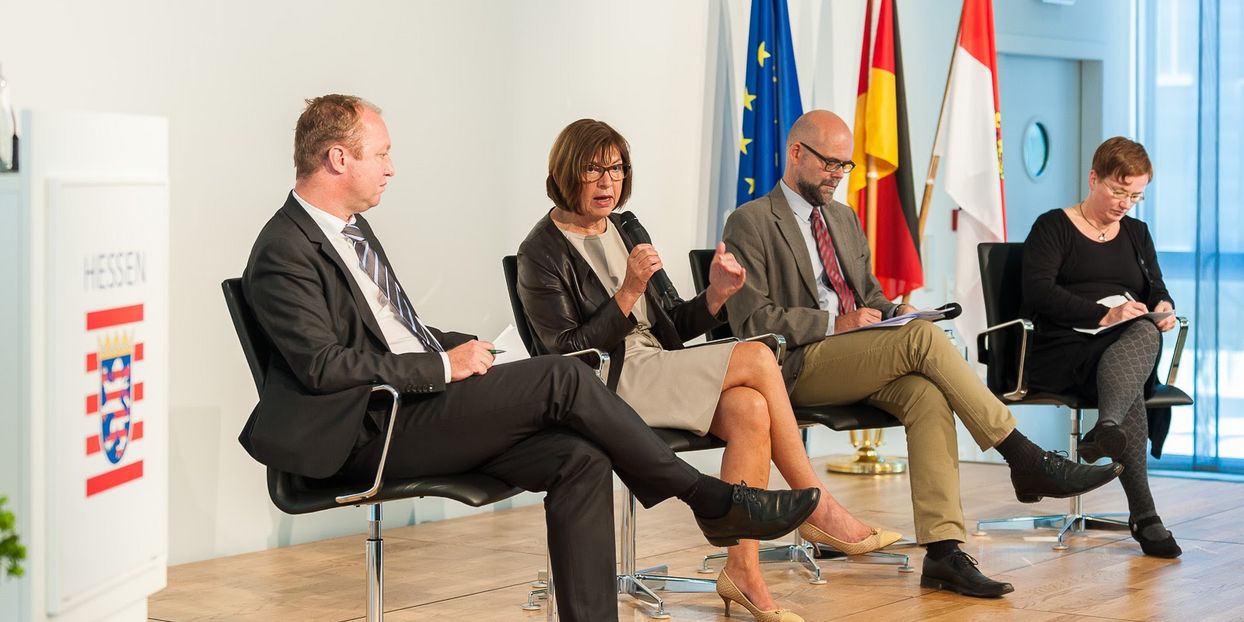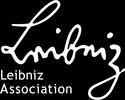
Die EU-Russland-Beziehungen in Zeiten multipler Krisen
Crisis Talk on 27. September 2016
EU-Russia relations are characterized by multiple, mutually reinforcing crisis areas. These are probably most acutely intensified by the open conflicts in Syria and Ukraine. On Tuesday, 27 September 2016, a Crisis Talk of the Leibniz Research Alliance "Crises of a Globalised World" together with its partners - the Frankfurt Cluster of Excellence "The Formation of Normative Orders" and the Brussels Office of the Leibniz Association - was therefore dedicated to precisely these relations. The event was hosted by the Representation of the State of Hessen to the European Union. In his welcoming address, the State Secretary for European Affairs of Hesse, Mark Weinmeister, immediately warned that the EU must become much more aware of the different experiences of the member states in order to then transform these into a common and determined policy on Russia that defends the value of plurality. In her welcome address, Prof. Dr. Nicole Deitelhoff, Director of the Peace Research Institute Frankfurt and spokeswoman of the Leibniz Research Association, also underlined the importance of EU-Russia relations and emphasised how closely these are linked to other global and European crises.
On the podium, Prof. Dr. Peter Haslinger, Director of the Herder Institute for Historical Research on East Central Europe in Marburg, took over as moderator of the discussion between science and politics. The first input from Dr. Anna Veronika Wendland, also from the Herder Institute, analysed the developments in the area of tension between the EU, Russia and Ukraine. Wendland began by pointing out that there was great disappointment in Ukraine over the identitarian-nationalistic developments in Europe, which were intensifying at the same time as the Ukrainian revolution for Western liberal values. While Europe was right to insist on a break with the post-Soviet patronage-based form of government and economy, it had to recognize that such developments needed time and support. In addition, Wendland said that Europe must develop a realistic foreign policy with regard to Russia and Ukraine, bearing in mind that the Ukrainian crisis is not an internal Ukrainian matter. One had to distinguish between what is desirable and what is feasible and orient the perception of Russia to its real actions. It is necessary to develop a common European foreign policy focused on individual policy areas that are capable of development. Wendland outlined this immediately with regard to energy policy, where she called for a break-up of the power position in the "hydro-carbon sector" - analogous to the development in gas policy and also with a willingness to take a positive stance towards the nuclear sector.
Dr. Jan C. Behrends, project manager at the Centre for Contemporary Historical Research in Potsdam, then focused in his remarks on Russian relations as such. Like the State Secretary in his welcoming address, he first pointed out differences in perception and experience between the Member States and noted that until the sanctions in 2014, there was actually no uniform policy towards Russia. He also pleaded for a clear and binding policy towards Russia, which would also have to dare to enforce expressed lines. The EU had to learn to represent its positions offensively and not to take back clarity and honesty even in case of negative effects on the relationship. This also includes the need for a better understanding of Russia, such as the regime change currently taking place there from early to late Putinism, which is characterized by greater aggression and clientelism.
Rebecca Harms, leader of the Greens/EFA Group in the European Parliament, began by supporting the positions of the two previous speakers by reporting on the experiences of her travels to Ukraine, especially the embattled eastern Ukraine. She stressed how difficult it was to stick to the line originally adopted by the EU in the European Union in the face of Russian propaganda offensives and old thinking. In addition, she said that Ukraine was literally stunned by the lack of empathy from Europe. Europe's distancing itself from its own ideas, from openness and plurality, is a pity not only in ideological terms, but also in terms of real politics. At present, regaining trust requires, first of all, to give security to the people in the war zones. The discussion about an end to sanctions and a 'normalisation' of relations with Russia is completely misguided - not least in view of the war situation in Syria.
The subsequent discussion with the audience initially revolved around the negative outcome of the referendum in the Netherlands on the Association Agreement with Ukraine. Asked about the justification and course of this vote, the panelists emphasized that this was symptomatic of a decline in Western European discussion culture, the rise of populism and the success of propaganda strategies. They discussed how the relationship between access to information and emotionalization should be weighted. Another focus of the discussion with the audience was the question of the extent to which the energy sector can actually be assumed to be capable of reform. In her answer, Dr. Anna Veronika Wendland made it clear that a sustainable break with the oligarchically controlled coal industry could be a starting point for a better and, in the long term, democratizing policy of the EU.
